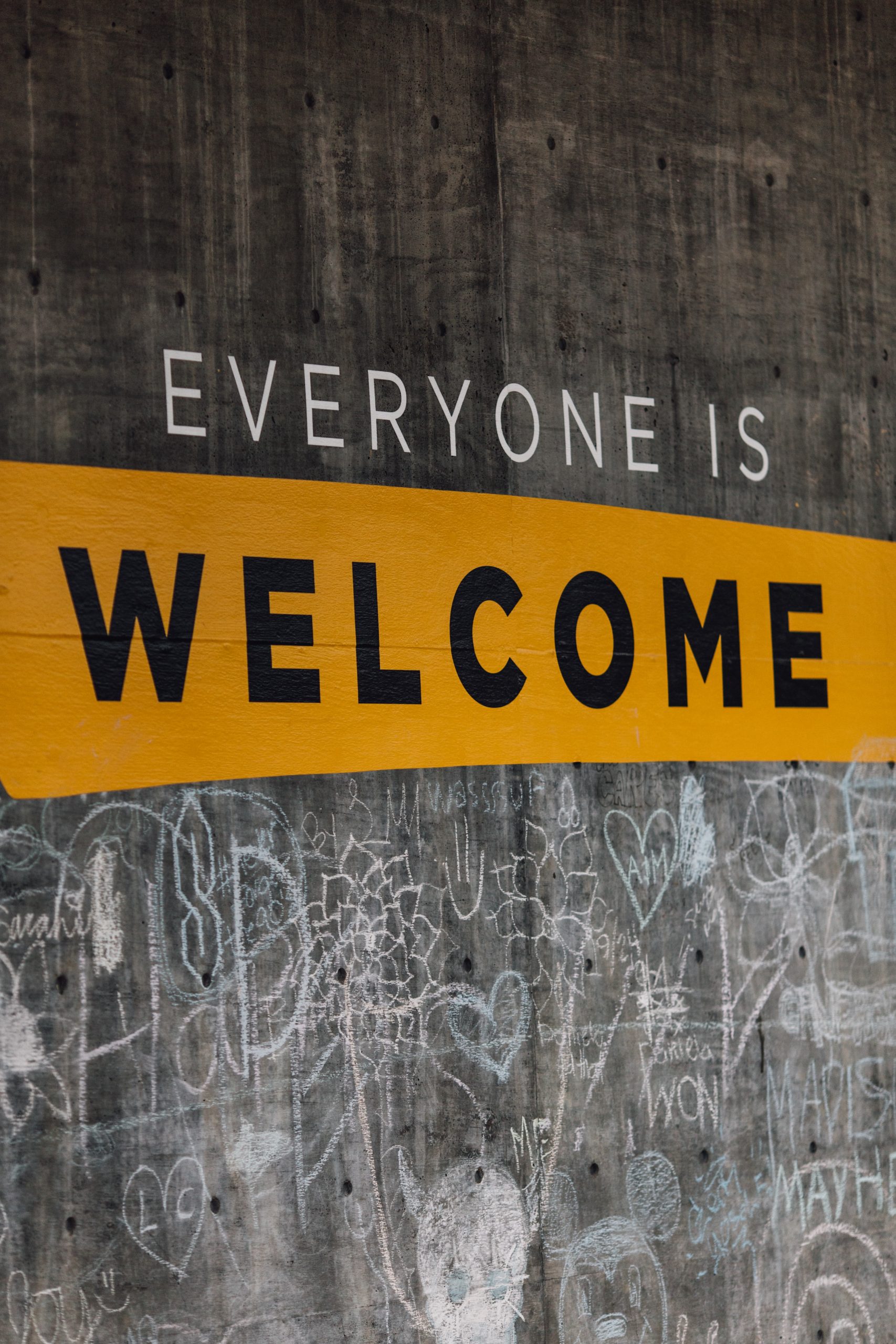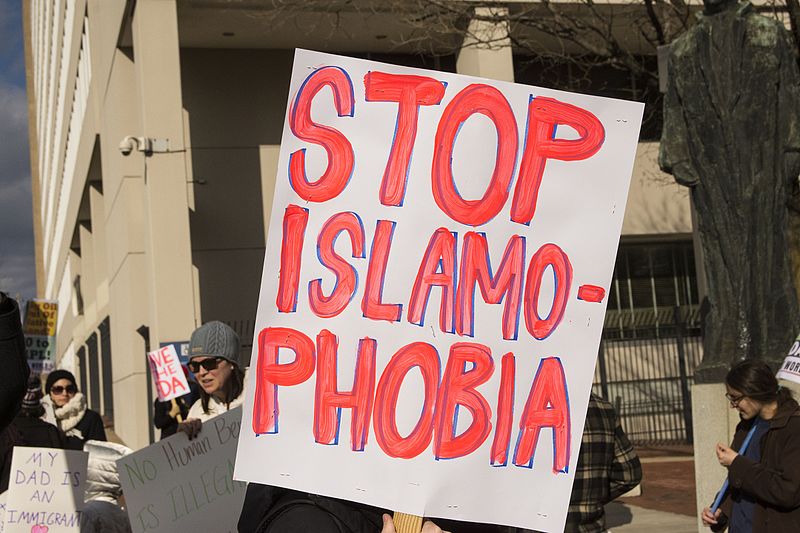Being in the audience for Come From Away was the first time I’ve been in a crowd since March 2020, and it was the perfect place to reintroduce myself to other human beings. This musical shows strangers thrown together in an unexpected crisis. Some of what happens is painful and confusing, but a lot of it is beautiful. And it’s worth taking note of the good stuff that transpires in a crisis.
This feelgood musical is about what happened to the hundreds of passengers who were dropped off in the middle of nowhere after their planes were diverted following the 9/11 attack. North American airspace was closed, and any planes in the air had to immediately land at the nearest airport. For 38 of those planes, the nearest airport was Gander, Newfoundland. And until airspace opened again, those passengers had to stay put.
The town of Gander was not a large one – it had a population of 10,000 people. So the task of welcoming 7,000 stranded passengers was huge. And no one had any idea how long they’d be forced to stay.
The musical shows how both the townspeople and the stranded passengers were changed by this event. It’s got pain and loss in it – as will any story about 9/11 – but it’s also full of hope, solidarity and comfort.
The Characters
The diversity of the people you meet in this musical is one of the things that makes it so good. You hear everyone’s stories, including:
- Captain Beverly Bass, pilot who was the first female American captain in history
- A gay couple both called Kevin
- An awkward English dude travelling on his own
- A Muslim chef
- The Mayor of Gander
- A journalist on her first day as a reporter
All the characters are based on real-life people who were there that week. Many of them have seen the musical now, at a special performance in Gander on the 10th anniversary of 9/11. Kevin Tuerff said of his portrayal by actor Chad Kimball: ‘I wept. It was just beautiful and so moving and it’s such an honour to have my story told by him.’
A cast that’s diverse in terms of gender and ethnicity is nice to see too. Positive representation of minorities and marginalised groups in popular culture is vital to their fight for equality, and Come From Away is working towards this goal with its cast.
Come From Away Advocates for Welcoming People to Your Home
The way the townspeople of Gander welcomed passengers of all different backgrounds sets a powerful example. The musical highlights how much good can come when we choose to be generous to people who need help.
Kevin Tuerff, one of the real-life passengers who inspired the show, took this away from his experience. He explains, ‘We were like refugees, we were forced to flee from home because basically a war had broken out, and we needed food, clothing, shelter, and information. And that is the same things that refugees all over the world need when they are forced to flee from home. We were forced from home for seven days. The average refugee is forced to flee for seven years.’
In response, Tuerff has since done work in New York to help immigrants and refugees. He thinks ‘how we treat strangers and immigrants and refugees’ in America is not right, and he’s trying to change that.
But the musical does well to show the generosity as a two-way exchange. Many townspeople in Gander found they gained too from helping people in need. In the midst of a crisis, human connection is one of the only things that keeps us going. The people in this town, on those days, found that with each other. And for many, the friendships that formed have lasted years. Diane Marson, one of the stranded people who is portrayed in the show, says many of the ‘Come From Aways’ (stranded people) now meet up with the Ganderites during publicity junkets for the musical. She says, ‘We always made sure we stayed at the same hotels. We’re like a family now.’

Islamophobia Following 9/11
A crisis brings out the best and the worst in people. One stark example of the latter is the rise in Islamophobia following 9/11, which the musical touches upon. In America, hate crime against Muslims spiked. Three people were killed in Islamophobic attacks within the first week after the twin towers fell. Unfortunately, the hate crime hasn’t calmed down much since then.
The rise in Islamophobia isn’t isolated to the US either. In the UK, Muslims, and Asians and Arabs suspected to be Muslim, have faced increasing suspicion and discrimination since 9/11. Hate crimes against Asians and Arabs increased between 25% and 30% immediately after the attack. And these people are much more likely to be stopped by airport security and police. Between 9/11 and 2003, stops and searches of Asian people by the British police force increased by 400%.
Islamophobia wasn’t invented in 2001. But in Western countries like the UK and the US, it’s certainly worsened since 9/11. Its effects on ethnic and religious minorities are devastating. N. Jerin Arifa explains her conflicting feelings about living in America as a Muslim woman: ‘Our country is so beautiful. But I just don’t feel safe.’
In the UK, many people share similar fears. One (non-Muslim) Asian man, Ramandeep, explained, ‘After 9/11, travelling has been difficult due to airport security. I was travelling to America and they even asked us to take our shirts off. We asked for a room but they refused. I was scared, I did not know what would happen next.’ There are countless stories from Muslims and ethnic minorities just like that one from all over the Western world.

A Crisis Shows Who You Are
But Come From Away takes care to not let hatred and discrimination overpower the show. In a crisis, you can respond with fear and suspicion, but you can also choose to act with kindness. This musical shows what can happen if you choose kindness.
The finale song sums it up perfectly. The wonderfully diverse cast sings together in harmony, ‘Tonight we honour what was lost, but we also commemorate what we found.’
I’d thoroughly recommend Come From Away to anyone who needs a reminder of how brilliant humanity can be together, when we choose to be.
